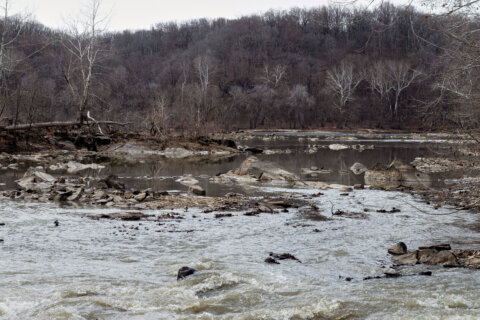A lawsuit was filed in U.S. District Court in Maryland on Tuesday in a bid to block financing and construction of the long-planned project to widen the Capital Beltway and Interstate 270 with the addition of toll lanes.
Environmental and historic preservation groups have joined in the latest challenge to the project, which has been one of Gov. Larry Hogan’s top priorities for easing traffic congestion between Montgomery and Northern Virginia over the American Legion Bridge.
The lawsuit charges that there are deficiencies in the environmental review, which won federal approval for the project to move forward.
“The Maryland Department of the Transportation tried to take shortcuts and circumvent really critical studies it needed to do,” said Josh Tulkin, director of the Maryland Chapter of the Sierra Club.
The lawsuit alleges that the expanded highways would likely increase concentrations of fine particulate matter, harmful to heart and lungs. The suit said the risk is especially high in neighborhoods in Gaithersburg, with high proportions of minority and low-income residents.
“We’re asking the court to vacate the current environmental review and send MDOT back to the drawing board to do this environmental review the way it should have been done from the start,” Tulkin said.
The Maryland Department of Transportation said the project is needed to ease congestion in traffic moving between Montgomery County over the American Legion Bridge into Northern Virginia.
The lawsuit also charges that the project threatens Plummers Island, a renowned botanical research site on the eastern side of the bridge.
“The project would significantly impact Plummers Island, which is one of the most scientifically studied natural places in the country,” Tulkin said.
The National Trust for Historic Preservation is party to the lawsuit, in a bid to protect the island and also Morningstar Moses Cemetery, an African American cemetery of unmarked graves in Cabin John.
“They only studied a small, narrow portion, which they said they could avoid. They did not actually study the full area, where burials are likely to have taken place,” Tulkin said.
Also party to the lawsuit is the Friends of Moses Hall, a group formed to protect the cemetery, which was once part of the African American community of Gibson Grove, which was taken by eminent domain to build the Capital Beltway.
EDITOR’S NOTE: An earlier version of this story misidentified the Department of Transportation.








